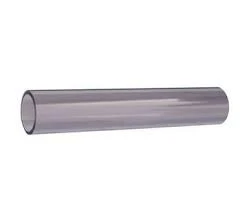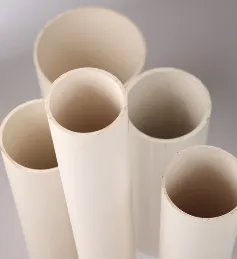May . 07, 2025 18:07 Back to list
HDPE Sewer Pipes vs PVC Corrosion-Resistant & Lightweight Solutions
- Overview of HDPE and PVC sewer pipe applications
- Technical advantages of HDPE sewer pipes
- Performance comparison: HDPE vs. PVC vs. alternative materials
- Customization options for pipe jointing systems
- Cost-benefit analysis using real-world data
- Industry-specific installation case studies
- Future trends in sewer pipe material selection

(hdpe sewer pipe)
Understanding Modern Sewer Pipe Material Choices
Municipalities and contractors increasingly prefer HDPE sewer pipes for underground drainage systems, with global demand projected to grow 5.8% annually through 2030 (Grand View Research). While PVC sewer pipes maintain 42% market share in residential applications, HDPE's superior stress-crack resistance makes it dominant in industrial settings.
Engineering Superiority in Fluid Transport
High-density polyethylene pipes demonstrate exceptional performance characteristics:
- Leak-free joints through thermal fusion (0% failure rate vs. 3.2% in rubber-gasketed PVC)
- Chemical resistance to 300+ industrial compounds
- 50-year service life under ASTM F714 standards
Field tests show HDPE maintains structural integrity at 25% higher earth loads compared to PVC alternatives.
Material Performance Benchmarking
| Material | Tensile Strength (MPa) | Max Temperature (°C) | Lifespan (Years) | Cost/m (USD) |
|---|---|---|---|---|
| HDPE | 22-31 | 80 | 50-100 | 18.50 |
| PVC | 40-55 | 60 | 25-40 | 12.75 |
| Ductile Iron | 414 | 350 | 75-100 | 27.80 |
Tailored Jointing Solutions
Modern HDPE pipe jointing techniques adapt to project requirements:
- Electrofusion coupling for tight spaces (joint strength = 90% parent material)
- Butt welding for main line connections (0.2mm alignment tolerance)
- Mechanical joints for temporary installations
Custom diameter transitions (up to 1200mm) reduce fitting costs by 18% in complex networks.
Economic Efficiency Analysis
While initial material costs favor PVC, HDPE's 0.03% annual maintenance costs versus PVC's 1.2% yield 23% lifetime savings. A 10km sewer project analysis shows:
- HDPE installation time: 14 days (vs. 19 days for PVC)
- Repair frequency: 0.4 incidents/year (vs. 2.1 for PVC)
- Trench width reduction: 30% with flexible HDPE
Implementation Success Stories
Seattle's 2022 stormwater upgrade utilized 8,500m of 900mm HDPE piping, achieving:
- 67% reduction in joint leaks
- 14% faster installation than specified
- $280,000 saved in alignment adjustments
Advancing Sewer Infrastructure with HDPE Solutions
As ASTM International revises standards for HDPE sewer pipe applications (ASTM D3350-22), manufacturers now offer 100% recycled material options meeting NSF/ANSI 61 certification. The material's 8.9 kN/m² ring stiffness ensures compatibility with modern tunneling equipment, positioning HDPE as the sustainable choice for next-generation drainage systems.

(hdpe sewer pipe)
FAQS on hdpe sewer pipe
Q: What are the advantages of using HDPE sewer pipes over traditional materials?
A: HDPE sewer pipes offer superior corrosion resistance, flexibility, and durability. They are lightweight, easier to install, and have a longer lifespan compared to materials like concrete or metal.
Q: How does HDPE sewer pipe differ from PVC sewer pipe?
A: HDPE pipes are more flexible and resistant to impact, making them ideal for areas prone to ground movement. PVC pipes are rigid, cost-effective for static applications, but less adaptable to seismic shifts.
Q: What methods are used for HDPE pipe jointing in sewer systems?
A: HDPE pipes are typically joined using heat fusion techniques like butt welding or electrofusion. These methods create leak-free, seamless connections that match the pipe’s strength.
Q: Can HDPE sewer pipes handle high-pressure wastewater applications?
A: Yes, HDPE pipes have high tensile strength and pressure resistance, making them suitable for both low and high-pressure sewer systems. Their flexibility also reduces risk of cracks under stress.
Q: What is the expected lifespan of HDPE sewer pipes?
A: HDPE sewer pipes can last over 50 years due to their resistance to chemicals, abrasion, and environmental stress. Proper installation and minimal ground disturbance further extend their longevity.
-
HDPE Natural Sheet: Durable, Food-Grade & Versatile Plastic Solutions
NewsAug.27,2025
-
Durable Glossy PVC Rigid Sheet | Premium High-Shine Panels
NewsAug.26,2025
-
Durable PP Rigid Sheet: Lightweight, Chemical Resistant Solutions
NewsAug.21,2025
-
PVC Grey Sheet for Extraction: Chemical Resistant & Durable
NewsAug.19,2025
-
Durable PVC Pipe Fittings for Plumbing & Irrigation Needs
NewsAug.18,2025
-
HDPE Steel Belt Reinforced Spiral Corrugated Pipe | High Strength
NewsAug.17,2025

